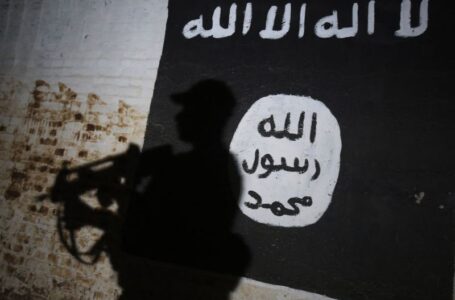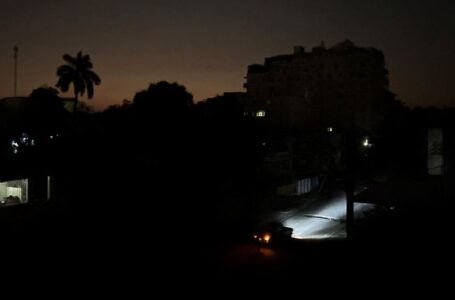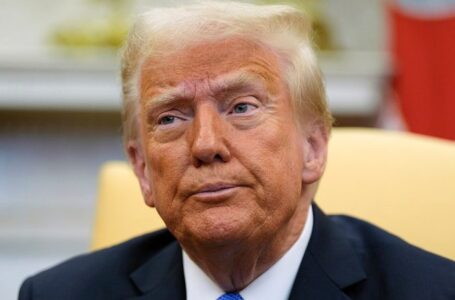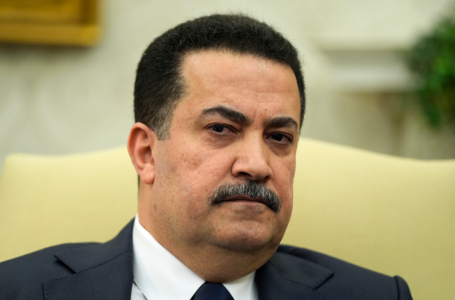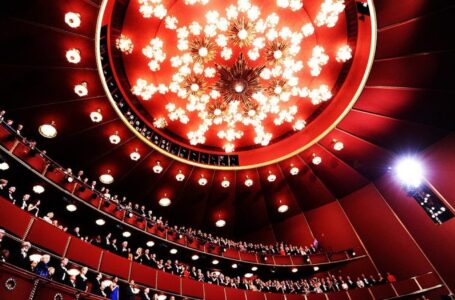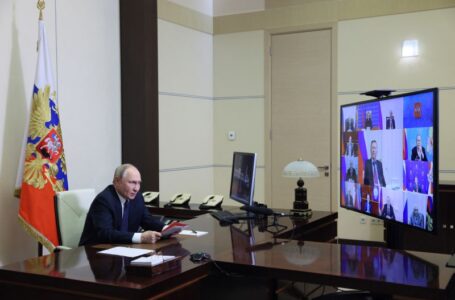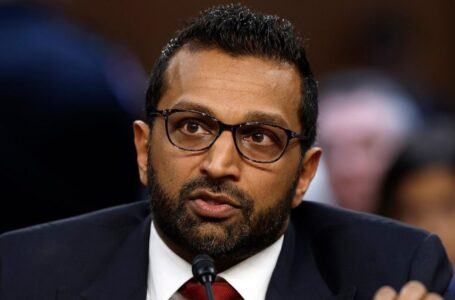ISIS chief in Iraq and Syria has been killed, Iraqi prime minister says
Ukraine’s election day dawns with no vote in sight and little appetite for one – for now, anyway
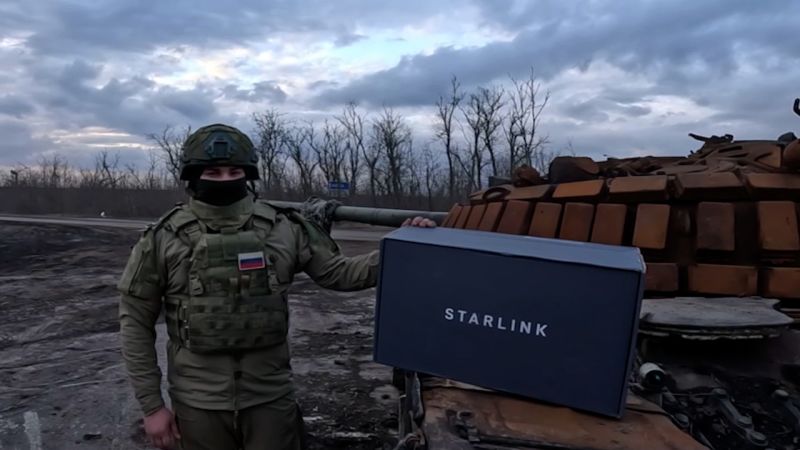

In another world, Ukraine would be voting today. In a year where billions get the chance to cast a ballot, people here would be giving their verdict on the presidency of Volodymyr Zelensky.
Five years ago, the man whose talents as an actor, comedian and producer had made him a household name in Ukraine was propelled into office. But with Russian forces still inside the country and millions of Ukrainians displaced from their homes, fighting on the frontlines, or living overseas, there is no election in sight.
Some US Republicans have sought to make the upcoming expiration of Zelensky’s term, which happens in May, another reason why military aid should be withheld.
Zelensky himself has said he was open to the idea but in recent months has made it clear it is not something he believes the country can or should do. Although Sunday is the day the constitution says Ukraine should be voting, it also does not allow it during wartime. The alternative would be to suspend martial law for the period of an election.
On Kyiv’s Maidan square on a Friday afternoon, it is chilly. Skies are overcast and there is a hailstorm on the way.
This large open space, through which cuts one of the city’s main thoroughfares, was the cradle of what Ukrainians call the Revolution of Dignity – the uprising ten years ago that pushed out the country’s pro-Putin leader, Viktor Yanukovych, and shifted Ukraine’s focus towards Europe and the United States.
Mykola Lyapin, a 21-year-old student, is having a smoke before the rain comes. He would have voted for Zelensky five years ago if he had had the chance and would vote for him now. He has no fear that when the time comes the president will move on.
“Our people are free, and we proved it in 2014, when we were dissatisfied with President Yanukovych. We came here to the Maidan, some even lost their lives, but we achieved what we wanted. It is in our genes to defend our position. If the people really believe Zelensky has been running the country for too long a time, we will solve it, even if the war is ongoing.”
Just up the hill, in a bookshop selling Jamie Oliver cookbooks, among other titles, 42-year-old psychologist Kateryna Bilokon is talking with a friend in the small café at the front of the shop. She voted for Zelensky in 2019 and is happy with his performance. She is dissuaded from supporting an election due to the cost.
“It would be a drain on the state budget; it would be better to redirect funds to arm our military,” she says, adding, “There is no one who could replace Zelensky at the moment.”
‘Not the right time,’ says Zelensky
Opinion polls suggest there is little appetite among Ukrainians for a vote – just 15% of respondents told the Kyiv International Institute of Sociology last month the country should hold an election.
Last August, President Zelensky was asked for his position in an interview on Ukrainian television and sounded sympathetic to holding a poll.
“There is a logic to it. If you are defending democracy, then you must think about this defense, even in a time of war. Elections are one of those defenses,” he said, at the same acknowledging that a vote could well prove a divisive distraction from the main goal of defeating Russia.
For a leader sensitive to accusations of wanting to hang on to power, and whose appeal in 2019 came in part from a pledge of greater openness and democratic transparency, shutting down talk of elections is a risk. All the same, in subsequent comments, the president has been less equivocal. “Now is not the right time for elections,” he said last November, and his position has not changed since then.
Oleksiy Koshel, of the Committee of Voters of Ukraine, a pressure group which seeks to uphold democratic rights, sees clear-eyed political calculation at work. He believes Zelensky’s team initially wanted to hold elections because the president’s support was so high. But as his ratings started to slip towards the end of the year so the leadership went cold on the idea.
Recent months have been tough on the battlefield for Ukraine. As the United States Congress continues to dither over new military aid, elections in Ukraine became folded into the debate by some Republicans. Vivek Ramaswamy, who ran for the Republican Party nomination for president, accused of Kyiv of “threaten[ing] to cancel elections … unless the US forks out more money.”
South Carolina Senator Lindsey Graham, despite being a strong supporter of aid for Ukraine, also took an unequivocal stance, telling a press conference in Kyiv last year, “I want to see this country have free and fair elections, even while it is under assault. The American people need to know that Ukraine is different. This has been a very corrupt country in the past.”
Strikingly, on his latest visit to Ukraine earlier this month Graham had moderated his position considerably, saying he now shared the consensus position among Ukrainians.
“Everyone I spoke with said you need to get this war in a better place before you have elections. That makes sense to me, having been on the ground,” he said.
More sensitively, perhaps, are the people living in what Ukraine refers to as the temporarily occupied territories. This is the roughly 20% of the country that is under Russian control.
The impracticalities of facilitating voting there are clear, but the optics of going ahead with a national poll regardless would also be deeply troubling to many. While some Ukrainians might quietly suspect that those who have stayed behind in the occupied territories have done so because they have pro-Russian sympathies, the appearance, nevertheless, would be one of abandonment, of Kyiv willingly disenfranchising those it is seeking to liberate. It is not hard to see how the Kremlin could exploit that.
The other group of people whose participation in the election would provide a challenge are those in the armed forces, especially those in combat positions on the front line.
“It would be unfair to deprive the right to vote in the elections for soldiers who are defending the independence of our country at the cost of their lives and health,” Stefanchuk said.
Soldiers warn against ‘power vacuum’
“The military is afraid that someone may decide to hold elections, either for internal reasons, or under pressure from Western countries […] A power vacuum during the transition period may pose a threat to the management of the military and the functioning of the state,” Oleksandr Voitko, serving with a drone unit, said.
Another soldier, serving with the 47th Brigade near Avdiivka, who preferred to remain anonymous, agreed.
Eventually, though, Ukrainians will return to the polls. Zelensky’s numbers may be off their highs, but he remains popular; 64% of Ukrainians say they trust him as leader.
Even so, Oleksiy Koshel, the voting rights campaigner, believes two years into the war, people are starting to move beyond a natural inclination in times of crisis to place trust in those in power. He expects politicians who emerge from the military such as former Commander in Chief Valerii Zaluzhnyi or lesser-known figures to get record results when elections are eventually held.
Anecdotally, too, it is not difficult to find people in Kyiv who believe there should eventually be a reckoning for the full-scale invasion for the current political leadership. A young businessman out with his wife and children, who were visiting him briefly from Italy where they were seeing out the fighting, was scathing about the president.
He had failed to heed the warnings about Russia, the man said, preferring not to give his name.
The result, he said, was that his own children, and those of his friends, were growing up speaking Italian or Czech because the war had driven them abroad to seek safety.
“These children should be speaking Ukrainian,” he said with a mixture of anger and ruefulness.
Maria Kostenko and Victoria Butenko contributed to this report

